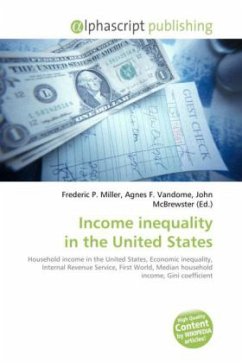Household income is a measure commonly used by the United States government and private institutions. That measure counts all the income of all residents over the age of 18 in each household, including not only all wages and salaries, but such items as unemployment insurance, disability payments, child support payments, regular rental receipts, as well as any personal business, investment, or other kinds of income received routinely. The residents of the household do not have to be related to the head of the household for their earnings to be considered part of the household's income. As households tend to share a similar economic context, the use of household income remains among the most widely accepted measures of income. That the size of a household is not commonly taken into account in such measures may distort any analysis of fluctuations within or among the household income categories, and may render direct comparisons between quintiles difficult or even impossible. In 2007, the median annual household income rose 1.3% to $50,233.00 according to the Census Bureau.
Bitte wählen Sie Ihr Anliegen aus.
Rechnungen
Retourenschein anfordern
Bestellstatus
Storno








